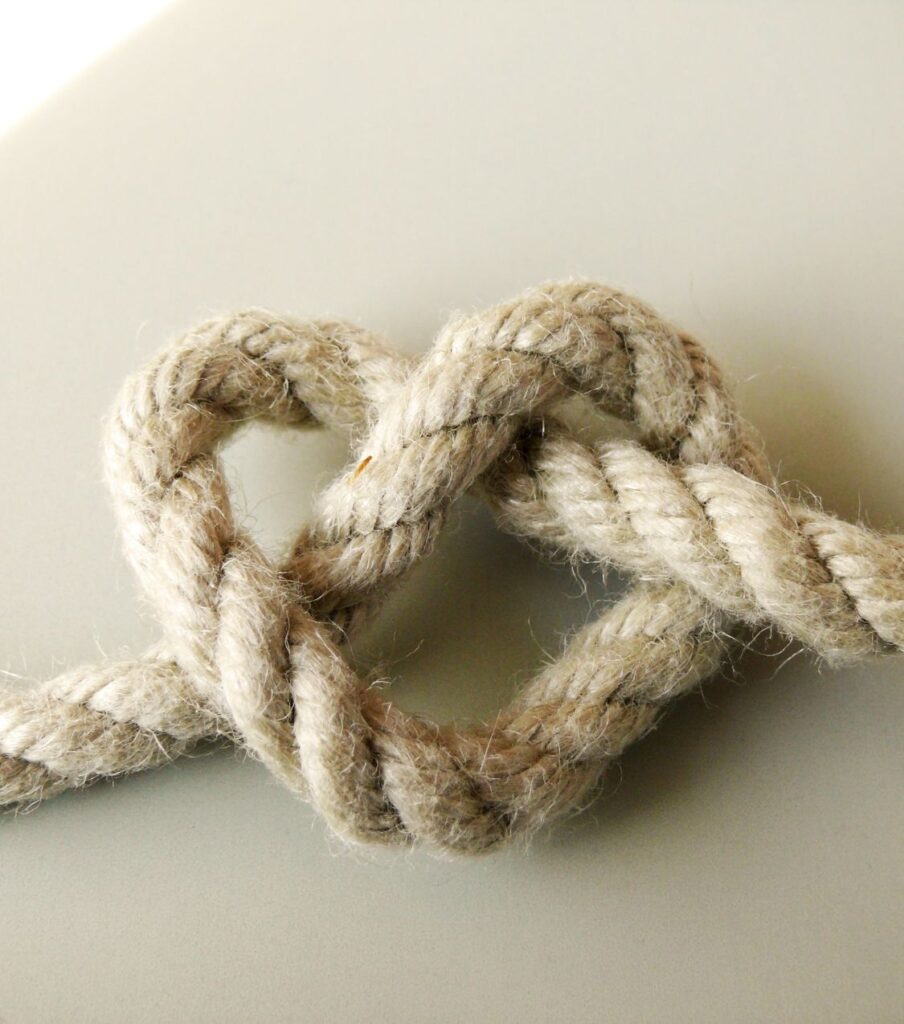True love and betrayal. We don’t want to believe that they have anything in common. If we are lucky enough to have the former, enduring the latter seems incomprehensible. Yet, so many couples find their worlds rocked and their hearts broken. Love and loyalty divided is unimaginable. We call it betrayal trauma. And if you’re experiencing it, you are likely wrestling with the question so often asked:
“How can someone who loves me betray me?”

FACING LOVE AND BETRAYAL: MAKING SENSE OF IT ALL
The confusion couples face when betrayal comes to light is rooted in the idea that our most intimate relationships are lasting and stable because of their love for each other.
Today, relationships are much more than a shared last name and residence. In fact, we have come to see committed relationships as bonds of friendship, comfort, and care that previous generations never imagined. That sense of security leads us to expect unmitigated loyalty and believe we are safer than we are.
Consequently, here we are, experiencing more infidelity than ever before. As therapists, my team and I witness couples tackling their deepest challenges and uncertainties while attempting to heal from betrayal. If you are a betrayed partner, the duality of love and the lack of loyalty hurts terribly. To recover, you require a new perspective and experienced support.
HOW TO START WORKING THROUGH BETRAYAL TRAUMA

At Relationship Experts, my team and I believe this issue deserves more exploration. To help you move forward, an in-depth discussion was in order. As the team leader, I (Idit Sharoni, LMFT) invited the following members to talk:
- Yael Haklai-Neagu, LMFT, PhD: a licensed Marriage & Family Therapist and a Ph.D. She specializes in relationships and affair recovery. She is a part of our Infidelity Recovery program team with a decade of experience.
- Ana De la Cruz, LMFT: a licensed marriage and family therapist specializing in relationships and affair recovery. She is on our Infidelity Recovery program team, with ten years of knowledge and experience.
- Alana Tokayer, MS: a marriage and family therapy intern and program specialist. Alana specializes in relationships and affair recovery. She retains all program information and interviews couples who want to participate.
ANSWERING THE QUESTION “HOW COULD YOU?”
Are you consumed with trying to understand how and why your loving partner chose betrayal? Your thoughts and emotions are probably all over the place. Some of those thoughts and feelings, though completely understandable, are likely to hinder the healing you long for.
Our discussion group members agreed that the way partners think about infidelity initially impacts relationship healing significantly. Asking the right questions with the right perspective can make all the difference.
Betrayal Trauma: Recognize Why You’re Struggling
Alana affirms your undoubted confusion about love and betrayal. To quote her, she shared, “…that absolutely one of the most difficult things for a betrayed partner to wrap his or her mind around is the aftermath of infidelity.”
Two main questions always come up for suffering couples:
- How can my partner claim to love me and yet hurt me so badly?
- How can those two things be true at the same time?
If you are the hurt partner, you aren’t alone if you feel forced to believe your unfaithful partner must not have loved you. If you are the unfaithful partner, you may be just as confused as you never stopped loving your spouse. Healing feels unreachable because you have given yourselves the space and time to consider other conclusions.
Betrayal Trauma: Staying Open to the Possibilities Matters

Ana noted that there is no one-size-fits-all answer for couples. The only commonality is that betrayal leads to pain and confusion. Infidelity does that to people; it shatters everything you thought you knew. A hurt partner is trying to make sense of things, they want to get some clarity about the life and love they thought they had.
To heal, Ana asserts that the hurt partner must stop asking, “How could they,” and start asking, “Why would they.” In other words, leave room for possibilities.
Asking, “Why did and how can someone who loves me betray me,” prevents the betrayed partner from making up their mind too soon, jumping to the conclusion that love never existed, and shutting down the possibility of future reconnection.
Betrayal Trauma: Don’t Let Your Thoughts Keep You Stuck
Yael agreed that it is normal to feel haunted by the “how could they” question. Yet, she maintains that these three types of thinking make that question an obstacle too difficult to overcome:
- Either/ Or thinking → the belief that my partner loves me or not
- If/Then thinking → the belief that if my partner betrayed me, then they don’t love me
- All/ Nothing thinking → the belief that all the items on your personal list confirm love or there is no love.
Yael challenges partners to recognize this problematic loop and confront these types of thinking. Healing comes with accepting that theirs is not a linear, cause-and-effect situation.
SO, HOW CAN LOVE AND BETRAYAL COEXIST?
To help you find a way to cope, we discussed how perceptions of love hold us back and prevent us from accepting the truth about our relationships. We dealt with some key questions about love and betrayal:
CAN YOU BE LOVED AND BETRAYED AT THE SAME TIME?
Alana says, “Yes.” Though the two relationship states seem at odds, she maintains that it is totally possible that your betraying partner loved you while still having an affair.
She notes that healing happens when you can accept that feeling love and acting in a manner that protects that love is something else entirely. Healing is understanding that the emotion of love is not enough to sustain a healthy relationship. It certainly isn’t enough to protect your connection from betrayal.
AREN’T LOVE & LOYALTY ALWAYS LINKED?
Ana asserts that the answer to this question is “no.” Society often teaches that love and loyalty are two sides of the same relationship coin. We naively approach long-term love, believing one cannot exist without the other.
Partners can choose to approach this differently, Ana advises. Though the hurt partner has to release the relationship they thought they had, both partners can choose to build a stronger, more honest connection. Relationship therapist and renowned expert Esther Perel wrote “…“We will have many relationships over the course of our lives. Some of us will have them with the same person.”
Ana further supported this idea, sharing that recovery after cheating is often similar to recovery after a hurricane. Reorganizing, setting a firm foundation, and reestablishing boundaries must occur to feel safe and comfortable again. Is it difficult to rebuild? Yes, the time, effort, and investment are considerable. However, it is all worth the work. You are where your heart desires, with the person you choose to love.
WHY DOESN’T LOVE ALWAYS IMMUNIZE YOU FROM BETRAYAL?
Yael shared that many couples are confused when love doesn’t innoculate them against infidelity. They are sad, helpless, and angry to find it is not enough. Yael agrees with Alana and Ana: love and betrayal can coexist. She refers to this way of perceiving the situation as the “both/and” way of thinking (“my partner can love me and at the same time betray/hurt me”).
She asks that struggling couples consider, “How can someone who loves me betray me?” with an open mind. Resist dwelling on the painful conclusion, “My partner doesn’t love me.” Why? This way, couples can commit to deeper relationship exploration. Learning how betrayal happened, regardless of their love for one another, becomes a more helpful focus and means for moving forward together.
RETHINKING LOVE AND BETRAYAL: TRY THESE TIPS

At Relationship Experts, we believe that practical strategies help support healing. Consider these healing tips to help you and your partner:
Be Patient.
Alana reminds couples that protecting love means having hard conversations. This requires intentionality, empathy, commitment, consistent action, and sincere effort. As a result, you’ll understand the importance of feeling love, as well as becoming conscientious about protecting your love.
If you’re the hurt partner, you need time to adjust to the idea that someone who loves you can betray you too. It’s a process. Don’t be discouraged. It doesn’t need to make sense right away. This doesn’t mean healing isn’t, or cannot, happen. You needn’t pressure yourselves to reconcile it all. With time and proper support, it will start to make more sense.
Look for Opportunities.
After the infidelity recovery program, Ana noted that one of her clients told his spouse, “Thank you for staying… I would choose you over and over again.” It was a beautiful peek into the new house that they had rebuilt together after the hurricane of betrayal. Appreciation and admiration were parts of their new foundation.
Reconciling betrayal depends on your specific love story. Ask how open you are to accept that your love existed alongside disloyalty. Failure means that you have the chance to rebuild a better version of your relationship. Ana reminds us that hitting rock bottom means you can now look for opportunities to rise together.
Visualize and Try This Exercise.
Close your eyes. Think about the question, ‘How can someone who loves me betray me?” or on the assumption, “If my partner cheated on me they don’t love me”. Yael asks that you see these perspectives as a wall that throws you back. Instead of running into it repeatedly, get curious.
- How high is this wall?
- What material is your wall made of?
- Can you climb, walk around, or pass through the wall?
Yael advises you to organize your thoughts around ‘if/then’ or ‘either/or’ thinking. Your wall can reach higher and be of material like concrete. Your goal is to then focus on solutions with some key questions:
- How do you lower its height so it’s not so overwhelming?
- What questions come to your mind, helping to change from concrete to bricks; so that you can slowly take one brick at a time?
- How can you navigate around the question or assumption so that the wall becomes a soft transparent curtain you can walk through?
This exercise helps you process love and betrayal as a complex and multi-layered experience.
READY TO TAKE THE NEXT STEP TOWARD INFIDELITY RECOVERY IN THE UNITED STATES OR ANYWHERE ELSE IN THE WORLD?
I hope this post was helpful to you! I hope too, that you recognize our ability to understand complex relationship situations while providing the guidance you need. Start healing your relationship with these strategies from Ana, Alana, and Yael. You’re not alone. We are here to help.
READY TO START AFFAIR RECOVERY?
Are you ready to rebuild trust and heal the wounds in your relationship? Take the first step towards affair recovery and reconnect with your partner on a deeper level. Join our supportive community at Relationship Experts, where you’ll find guidance, resources, and a safe space to navigate the journey toward healing and restoring your relationship’s foundation of love and commitment. Follow these three simple steps to get started:
- Schedule a free consultation or call our office at 305-507-9955 to ask about Affair Recovery
- Meet with one of our skilled affair recovery therapists for your first session
- Begin healing your relationship with your partner!
OTHER SERVICES PROVIDED BY RELATIONSHIP EXPERTS
Our therapists at Relationship Experts provide a wide range of services to help you and your partner recover from infidelity. Our Miami, FL-based office offers many different services online throughout the United States, Canada, the UK, and worldwide besides Surviving Infidelity, including Affair Recovery Program, and Remorse Blueprint E-Course. We also offer a free Masterclass for couples looking for the secret to healing from infidelity. Check out our Podcast for more articles like this!
Listen to This Episode
Watch This Episode on YouTube
More Blogs About Betrayal Trauma
Click here to read a recent blog post about betrayal trauma and how to help betrayed partners cope with PTSD after infidelity.
Comments +